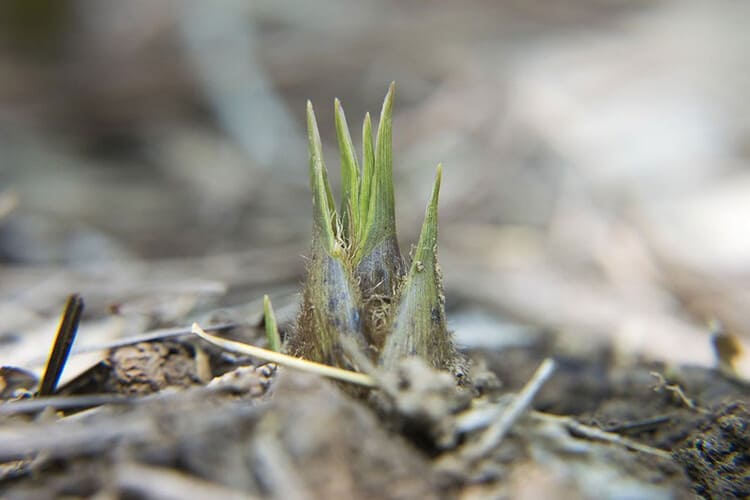Sign up for our newsletter
Get Swipe Garden's independent reviews, and expert advice sent straight to your inbox.
For information privacy practices, read our Privacy Policy.
Sign up for our newsletter
Get Swipe Garden's independent reviews, and expert advice sent straight to your inbox.
For information privacy practices, read our Privacy Policy.
Sign up for our newsletter
Get Swipe Garden's independent reviews, and expert advice sent straight to your inbox.
For information privacy practices, please read our Privacy Policy.

Lucky bamboo plant fertilizer contains a high nutritional content. Therefore, many gardeners usually ask, “Can you use bamboo fertilizer on other plants?”
No, you cannot use bamboo fertilizer on other plants because it only nourishes the tree combined with it. To provide your plants with all the necessary nutrients, it is recommended to use a combination of different types of fertilizers. Let’s dive right into the details with Swipe Garden!
You cannot use bamboo fertilizer on other plants. As we know, fertilizing bamboo is essential for its growth and development. However, some people use this tree as a supplemental nutrient for some other species in the garden. Gardeners recommend that you do not do it.
Bamboo fertilizer contains a growth-stimulating hormone that promotes root development and increases plant growth. If you are using bamboo’s straw-like natural fertilizer, ensuring that the organic fertilizer has the right amount of nitrogen can maximize its effectiveness. If you put it in without first adding ammonium nitrate, the stimulating hormones will break down before good things happen!
You can feed your bamboo plants compost or organic fertilizer. If you are growing your bamboo plant in water, use liquid fertilizers that can dissolve in water. Natural and organic fertilizers are good for lucky bamboo. When the bamboo shoots grow in the spring, you can use a liquid fertilizer that works quickly.
It is not advisable to use the same fertilizer for different types of plants. Although all trees rely on the same essential elements, you have to feed them a suitable amount of nutrients. Despite the vast assortment of brands and mixes available, fertilizing is not tricky. It is important to determine the existing nutrient levels in the soil before selecting a fertilizer.
Once you’ve determined what elements your soil lacks, all you have to do is choose a nutritional compost that includes those nutrients and follow the package guidelines. If using lawn fertilizers, ensure they are free of herbicides, as this will affect your plants.
The terms “fertilizer” and “plant food” are not interchangeable. However, it is a misnomer: plants produce their nourishment via photosynthesis. So, it would be best if you fertilized your trees properly. However, if plants are not fertilized, they will rely solely on natural processes for their growth and development.
Fertilizer is more like a vitamin pill than a meal; it is a supplement that ensures plants obtain essential nutrients, including nitrogen, potassium, phosphorus, iron, magnesium, and calcium. They acquire these nutrients from the soil in nature, and the most significant source is always good soil.
Yes, it is even more effective than some gardeners believe. Lucky bamboo is a remarkably adaptable plant that can thrive in almost any type of soil. On the other hand, it thrives the most on aerated, light-structured soil that is rich in nutrients.
Many common species require calcium and other organic nutrients to grow strongly. Soil-based lucky bamboo already has everything in perfect balance, which makes it ideal for growing different plants.
Lucky bamboo can pose challenges in the garden when growing other plants nearby. It is a beneficial species that can provide shade, improve soil quality, and transfer moisture into the air if you utilize the proper identification procedures. Here are some reasons you should think about when having this species in your garden:
Lucky bamboo can escape and spread throughout your yard, which can be harmful to the environment. Certain varieties of spreading lucky bamboo are considered invasive species that can displace native plants and harm biodiversity.
Many owners may not consider the best solutions to control the spread of this plant because they can be costly and complicated. Furthermore, they are not impregnable. To prevent the spread of lucky bamboo, it is suggested to bury a solid barrier made of 60-mil fiberglass or polypropylene approximately 3 feet deep, leaving about two inches of material above the topsoil.
You may surround the lucky bamboo with a solid barrier constructed of metal, concrete, or pressure-treated wood at least 20 inches deep.
Although many of these obstacles should prevent the shallow root system from spreading, it is best to keep a constant eye on the region for escape branches, especially during the peak growing season in the summertime.
Herbicides may be necessary for managing lucky bamboo, especially if you want to remove it to make space for other plants. It might be a concern for individuals who wish to keep their gardens organic and avoid using herbicides.
Removing unwanted bamboo can be a time-consuming and labor-intensive process. It is necessary to remove the root structure before fully eliminating the lucky bamboo. Mow or slice the stem, then spray herbicide on the leaves to not let it regenerate. Certain broad-spectrum herbicides, like Roundup and Weed Killer, have minimal soil residue and target only the sprayed species.
We hope this article has provided you with the necessary information to effectively fertilize various plant species in your garden. In response to the question “Can you use bamboo fertilizer on other plants?” The answer is no. Although this nutritional compost contains high nutritional content, it may not work well on other species.
You can refer to the instructions in this video to better understand how to remove the roots from the ground:
Related posts: